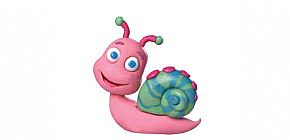Is Your Child Sick? Here’s How to Know When to Head to the Doctor
 |
|
On the on hand, we don’t want to drag our children to the doctor unnecessarily. On the other hand, we don’t want to neglect their health. So, how do we know when they’ve contracted a viral infection that will pass on its own, and when to head to the doctor’s for a checkup and diagnosis? Everything you need to know, right here.
One of the greatest concerns of every parent is that their child receive proper medical treatment. In early childhood, children do not always know, or cannot express their feelings, so it is up to each parent to be able to identify when their little one has a simple fever, and when additional medical treatment is required. In certain cases, doctors also have a difficult time diagnosing early stage illnesses, and some illnesses can start off looking like a virus, but only later distinguish themselves as bacterial infections.
Common warning signs (you should head to the doctor):
- Fever in infants under 6 months in age: An infant with a fever higher than 38.5 degrees can sometimes be sicker than they seem. Young infants often do not demonstrate any symptom other than a fever, but can develop aggressive infections that require medical attention, as their immune systems are not yet mature.
- Apathy, lethargy and decreased mood: It is natural that sick children will be less active than usual, but their ability to communicate should not be adversely affected as a result. A child who does not respond, smile, or move about a lot requires additional medical care.
- Ear aches that last longer than two days or are accompanied by a high fever: Most ear infections in infants and toddlers take place in the middle ear, are vial and pass on their own within three days. Ear aches that persist for longer than two days can indicate the development of a bacterial infection that requires antibiotics.
- A deep cough and difficulty breathing: Any respiratory distress, heavy chest movements, or a persistent coughing accompanied by fever or barking sounds, should be checked out by a doctor. These phenomena can indicate pneumonia, bronchitis or other respiratory illnesses that require monitoring and treatment.
- Diarrhea or vomiting that lasts longer than two days, or is bloody: Persistent diarrhea or vomiting can cause dehydration and should be treated by a doctor if they do not pass in a reasonable amount of time.
- A fever that lasts for longer than three days: A fever that does not break after three days can indicate a bacterial infection. As such, it is a good idea to head to the doctor for a checkup, and, if necessary, have your child give a blood or urine sample.
- Fever accompanied by a headache and vomiting: This can indicate a bacterial infection. Consult with a doctor before starting any antibiotics,
- External changes: Limping, rashes that do not disappear when pressed on, or any other phenomenon that seems unusual require a doctor’s appointment.
What’s the difference between a virus and bacteria?
The treatment of every illness depends on its source, namely, if it was caused by a virus or bacteria. A virus is a parasite that cannot multiply on its own; it requires a surrogate - the sick
person’s body. Bacteria, on the other hand, is a living and independent being that can multiply on its own. This difference dictates how each illness is treated.
- When an illness is bacterial, doctors prescribe a medication that acts against its mechanism of multiplication, preventing it from spreading, the antibiotic.
- When an illness is viral, antibiotics will not help, and may even be harmful, as instead of attacking the virus, it ends up attacking the surrogate that helps it multiply - the child’s cells.
The system responsible for coping with viruses is the body’s immune system. The stronger it is, the easier it identifies viruses infiltrating the cell and creates antibodies that attack them and prevent their spreading. Most illnesses are viral and so most treatments focus on relieving their symptoms, while the immune system works on thwarting the virus.
Relieving the symptoms of viral illnesses
Generally, the symptoms of viral illnesses include fevers, coughs, runny noses and muscle pains. It is recommended to administer a fever reducer and/or pain reliever to infants and toddlers suffering from viral illnesses - ones that have been designed for them and are made from paracetamol.
How should you warm your home and your infant’s bedroom? Do you need to bathe your child every day? What are the baby gear must-haves for your home? ...
Many parents of infants and toddlers complain about their children experiencing never-ending colds. On the one hand, their children are in good ...
What type of cough does your infant have? Dry? Wet? Barking? Different medical states are characterized by different types of coughs. All you need to ...


.jpg)
.jpg)
.jpg)
.jpg)



.jpg)
.jpg)
.jpg)
.jpg)

.jpg)





Contact us